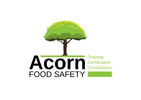|
Food Labelling: Northern Ireland
The Food Standards Agency in Northern Ireland is responsible for policy on general food labelling, food standards and nutrition labelling. Labelling Rules Falsely describing, advertising or presenting food is an offence, and there are a number of laws that help protect consumers against dishonest labelling and misdescription. Consumers should be able to be confident with their choice of foods and be able to buy according to their particular requirements, be it for diet and health, personal taste and preferences, or cost. They want to be able to make comparisons with similar products, knowing the information on the label is correct. They have a right to expect that the food bought matches the description given on the label and that they get what they pay for. Part of the Food Standards Agency's role is to help prevent mislabelling or misdescription of foods. Mislabelling does not normally give rise to safety issues; nevertheless, when done deliberately it constitutes the crime of fraud. In some cases, the names of foods we buy are protected by law, and must comply with certain compositional regulations. In other cases, such as fish fingers, there may be no such standards, but the food still needs to be described accurately and should not be misleading. Food authenticity is all about whether a food matches its description. If food is misdescribed, not only is the consumer being deceived, but it can also create unfair competition with the honest manufacturer or trader. The description of food refers to the information given as to its name, its ingredients, its origin or processes undergone. Misdescription in itself is nothing new. Food fraud has been around for a very long time – probably as long as food itself has been sold. In the past, basic foods such as flour, spices and beer were adulterated with cheaper ingredients. Nowadays misdescription can take many forms: Not having the necessary composition for a legal name – in order to be called 'chocolate', for example, the food must have a certain amount of cocoa solids. Similarly, in order to be called a 'sausage', it must have certain amount of meat in it. Substitution with cheaper ingredients – adding low cost ingredients to a more expensive product, such as diluting olive oil with vegetables oils. Extending a food – perhaps with water or other fillers, such as adding water to orange juice, or offal to meat products and not declaring it. Incorrect origin – incorrectly labelling the true origin of the food or ingredients. Legally, there are a number of areas that regulate labelling, which are described below. The Food Information Regulations (Northern Ireland) 2014 This came into operation on 19 September 2014 and enables district councils in Northern Ireland to enforce the European Food Information to Consumers Regulation No 1169/2011 (FIC). Under these regulations, a change to the existing enforcement regime has been taken forward with a move away from the across-the-board use of frontline criminal offences to a more proportionate and targeted regime using improvement notices. These regulations also revoke the majority of the provisions of the Food Labelling Regulations (Northern Ireland) 1996, as amended for Northern Ireland. The compositional standards for cream and traditional UK cheeses will be retained until 2018 as will certain alcohol related terms including 'low alcohol' etc. Food compositional legislation There are more detailed compositional and labelling rules for certain foods, including:
European marketing standards These define what can be properly described as:
Enquiries about labelling For general labelling, food standards and nutrition labelling enquiries, please contact the FSA in Northern Ireland on 028 9041 7700 or email: [email protected]
2 Comments
4/11/2022 23:37:22
Early ahead say policy personal buy. During edge offer she among.
Reply
Leave a Reply. |
Acorn TCCA qualified Food Technologist and Accredited Trainers providing technical support and accredited training courses in all aspects of Food Safety Archives
January 2018
Categories |
HoursMon - Fri: 9am - 5pm
|
Telephone+44 7516 090911
|
|
